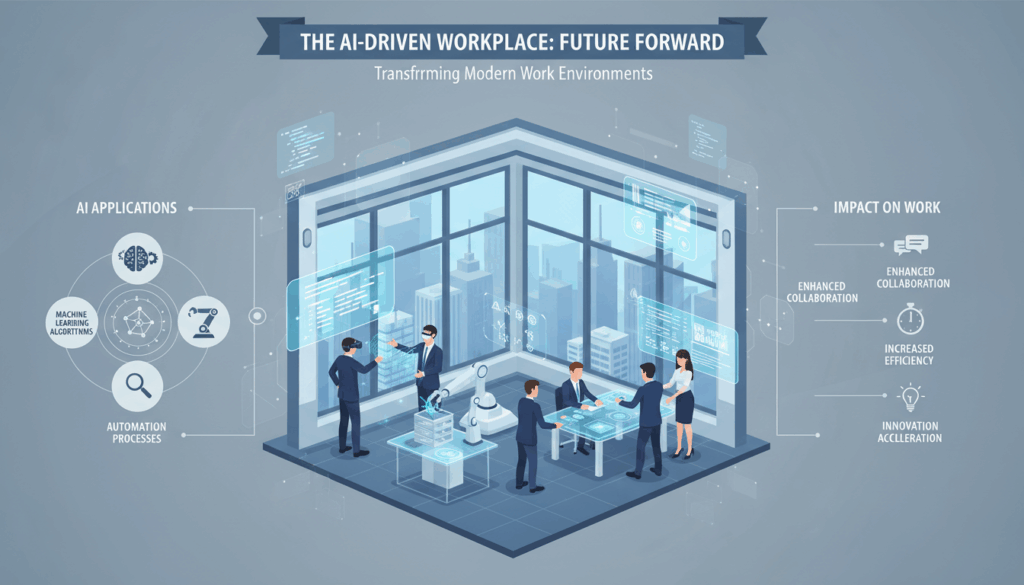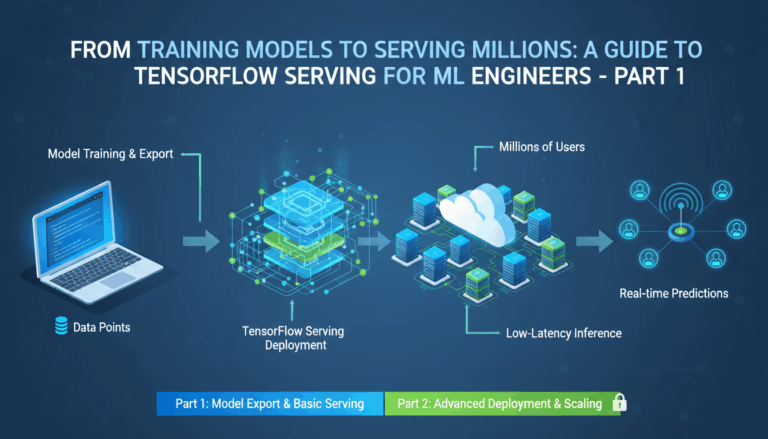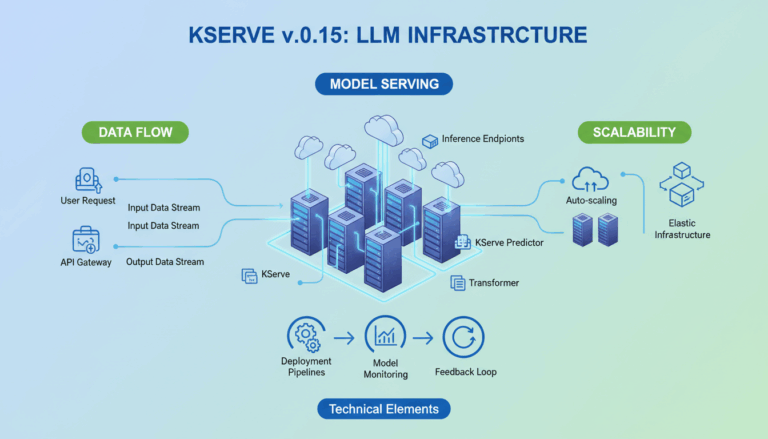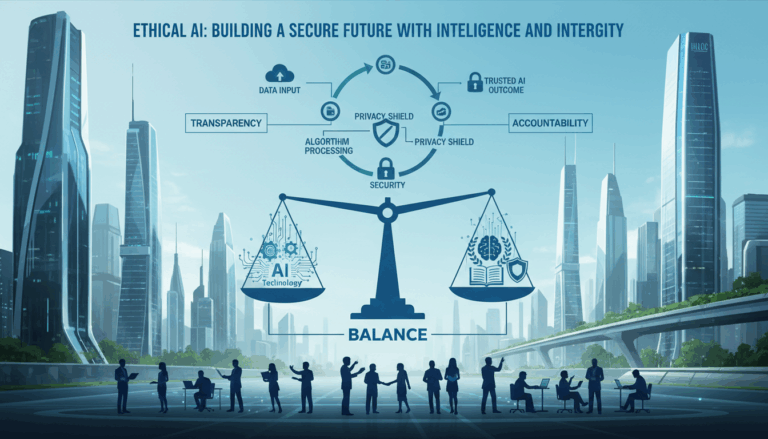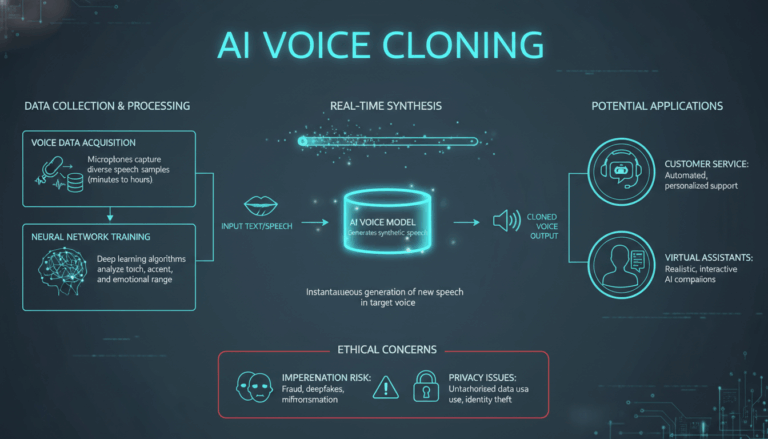Introduction to AI in Modern Work Environments
AI, or Artificial Intelligence, has become a transformative force in modern work environments, revolutionizing how businesses operate and how tasks are executed. This transformation is driven by the ability of AI technologies to handle complex data analysis, automate mundane tasks, and even assist in decision-making processes, thereby enhancing productivity and innovation across industries.
In the past, routine tasks required human intervention, often consuming considerable time and resources. With AI, many of these tasks are now automated. For instance, scheduling meetings can be seamlessly handled by AI-based tools like virtual assistants, which automatically find mutual availability among participants and send calendar invites. Such automation relieves employees from repetitive tasks, allowing them to focus on more strategic activities.
AI is not limited to automation but extends to data-driven decision-making. Companies are leveraging machine learning algorithms to analyze vast datasets, uncovering patterns and insights that would be impossible for humans to identify manually. For example, in the finance sector, AI algorithms are deployed to detect fraudulent transactions in real time by analyzing transaction patterns and flagging anomalies.
Moreover, AI-powered systems enhance customer interaction and satisfaction through advanced chatbots and virtual customer service representatives. These systems understand and process language more naturally now, thanks to Natural Language Processing (NLP). They provide instant responses to customer inquiries, 24/7, improving user experience and maintaining engagement without the need for constant human supervision.
In manufacturing, AI optimizes supply chain operations and predictive maintenance. Predictive algorithms assess equipment data to forecast potential failures, enabling proactive maintenance schedules that minimize downtime. AI-driven analytics enhance inventory management, ensuring optimal stock levels and reducing waste.
AI’s influence extends to human resources, where it streamlines recruitment processes by using algorithms to filter resumes, identify suitable candidates, and even conduct preliminary interviews via AI-driven platforms. This approach not only speeds up hiring but also reduces biases, creating a fairer selection process.
Additionally, AI fosters innovative workplaces by enhancing collaborative tools through real-time analytics and smart suggestions. Platforms integrated with AI can recommend relevant documents, previous projects, or experts within the organization who could contribute valuable insights to ongoing projects.
Ultimately, AI in modern work environments represents a shift towards embracing technology not as a replacement but as a partner to human workforce, driving efficiencies and creating opportunities for more creative and high-impact work. As companies continue to adopt AI, they gain a competitive edge, not only through efficiency gains but also by unlocking new avenues for growth and innovation.
Automating Routine Tasks for Enhanced Efficiency
Many companies today are embracing artificial intelligence (AI) to automate routine tasks, leading to significant benefits in efficiency and productivity across various industries. By delegating monotonous and time-consuming tasks to AI systems, businesses can free up valuable human resources to focus on strategic initiatives and creative endeavors.
AI-powered tools are adept at handling tasks that involve repetitive processes, offering an exceptional advantage by speeding up operations and reducing error rates. In an office setting, for instance, document management and data entry can be substantially augmented using AI-based software. These tools can extract pertinent details from written documents or emails, automatically categorizing and filing them based on predefined parameters. This functionality not only minimizes human error but also promotes a more organized and efficient workflow.
Another illustrative example of automation is in customer service, where AI chatbots and virtual assistants undertake first-level client interactions. These AI systems provide instant and accurate responses to routine inquiries, handling numerous requests simultaneously without fatigue or delay. By managing such tasks autonomously, companies deliver faster customer service and enable human agents to focus on more complex queries that necessitate a personal touch.
On a broader scale, the integration of AI into supply chain and logistics operations has revolutionized the efficiency of these processes. AI algorithms are employed to predict demand patterns and optimize supply routes, ensuring timely delivery while minimizing logistical costs. Automated inventory management systems track stock levels in real-time, predict restocking needs, and place orders autonomously, thereby preventing overstock or stockouts.
Moreover, industries like finance deploy AI for automating fraud detection. Machine learning models can analyze millions of transactions in real-time, identifying unusual patterns indicative of fraudulent activity. This continuous vigilance allows companies to act swiftly against potential threats.
In the realm of marketing, AI has transformed how campaigns are structured and executed. Automation tools can schedule social media posts, orchestrate email marketing strategies, and tailor advertisements to specific user behaviors through machine learning insights. These capabilities ensure that marketing efforts are timely and relevant, enhancing the impact of communication strategies.
Human resources departments also benefit from AI automation, utilizing it to streamline recruitment processes. Automated systems can screen vast pools of resumes, shortlist candidates, and even conduct initial interviews through AI-powered chatbots, thus speeding up the hiring process and reducing human bias.
Ultimately, by embracing AI for the automation of routine tasks, companies not only save costs but also enhance operational efficiency. This shift allows employees to concentrate on innovation and problem-solving, driving businesses towards growth and strengthened market positions. As AI technology continues to evolve, its role in automating tasks will expand, offering even more robust solutions to everyday business challenges.
Personalizing Employee Experiences with AI
Incorporating artificial intelligence into the workplace allows companies to tailor experiences that align closely with employee needs and preferences, thus fostering a more engaging and productive work environment. The use of AI for personalizing employee experiences involves leveraging data-driven insights to create customized interactions and opportunities that resonate with individual employees, ultimately enhancing their satisfaction and productivity.
AI achieves personalization by analyzing vast arrays of employee data to understand behaviors, preferences, and interactions within the workplace. For example, machine learning algorithms can process data collected from employee feedback, communication patterns, and performance metrics. This enables the creation of personalized development plans where training programs and skill development resources are suggested based on an employee’s specific career aspirations and current skill set.
Furthermore, AI-driven platforms can optimize task assignments based on an employee’s strengths and workload balance preferences. By doing so, companies ensure that employees are not only working on tasks that effectively utilize their skills but are also maintaining a healthy work-life balance, reducing burnout and turnover rates. For instance, AI systems can recommend shifting workloads or delegating new tasks that match an employee’s demonstrated interests and competences.
In addition to internal operational enhancements, AI also plays a crucial role in creating personalized wellness initiatives. Through analysis of aggregated data about employee stress levels, health activities, and workplace engagement, AI tools can suggest customized wellness programs. These programs could include gym memberships, mindfulness apps, or dietary plans that are curated to fit the unique lifestyle and health objectives of each employee. Such initiatives promote a culture of health and well-being, which is integral to employee satisfaction and long-term retention.
Personalized communication is another area where AI excels, improving how companies interact with their employees. AI chatbots and automated messaging services can send timely and relevant updates to employees concerning company news, policy changes, or events. Simultaneously, these platforms can facilitate two-way communication by collecting real-time feedback from employees on various aspects of their work experience, allowing companies to promptly address concerns or suggestions.
Lastly, AI empowers human resource departments to enhance onboarding experiences. By analyzing new hires’ backgrounds, roles, and early interactions with the company, AI systems can tailor onboarding processes to better integrate individuals into their new workplace. This could include personalized orientation schedules and mentoring recommendations, thereby accelerating the acclimation process and improving overall job satisfaction.
By integrating AI into the personalization of employee experiences, organizations can foster a more supportive and adaptive work environment. Each personalized adjustment not only enhances immediate satisfaction but also contributes to the long-term growth and happiness of employees. Such strategic personalization transforms the workplace into a more dynamic and inclusive environment, aligning company goals with employee ambitions.
AI-Driven Decision Making and Strategic Planning
Incorporating AI into decision-making processes and strategic planning enables businesses to harness vast data pools to generate insights that inform more objective and timely decisions. AI-driven decision-making leverages algorithms capable of analyzing extensive datasets rapidly, uncovering trends, and providing predictions that guide strategic initiatives.
Modern AI systems excel in processing data points from diverse sources, including customer behavior, market trends, and financial performance metrics. For example, machine learning algorithms can examine historical data to forecast future sales trends. This allows companies to adjust their inventory strategies or marketing efforts proactively in anticipation of demand shifts, thus ensuring optimal resource allocation.
AI’s role extends to enhancing predictive accuracy in financial planning. Algorithms identify patterns in economic indicators that might elude traditional analysis, permitting finance teams to craft strategies that account for potential fluctuations in currency exchange rates or interest rates. By providing actionable insights, AI tools assist companies in devising robust financial strategies that mitigate risks and capitalize on emerging opportunities.
An illustrative real-world application is in supply chain management, where AI enhances strategic planning by evaluating factors such as weather forecasts, geopolitical events, and logistics costs. AI-driven models predict potential disruptions and suggest contingency strategies to ensure supply chain resilience and continuity. Companies can thus plan refined logistics routes or strategic stockpiling measures ahead of unforeseen disruptions, maintaining smooth operations.
Moreover, decision-making in marketing strategy benefits significantly from AI analysis. By processing consumer data, AI systems tailor marketing strategies to specific demographics, ensuring that campaigns not only reach the right audience but resonate through personalized content and targeted messaging. This level of customization increases engagement rates and drives conversion.
AI supports human resource departments in strategic planning as well by facilitating workforce management through predictive analytics. By assessing staffing trends, AI can forecast hiring needs or anticipate skills shortages, allowing companies to prepare targeted training programs or strategic hiring initiatives. This proactive approach ensures that organizations maintain a competitive talent edge.
In risk management, AI-driven decision support systems offer enhanced capabilities by continuously scanning for threats and weaknesses in organizational processes. By simulating scenarios, AI predicts potential outcomes of various risk factors, helping decision-makers to prioritize risk mitigation strategies and allocate resources effectively.
To implement AI-driven decision-making, companies can start by identifying clear objectives and selecting appropriate AI tools that align with their strategic goals. Investing in quality data infrastructure is crucial for capturing and processing necessary data, as is ensuring robust cybersecurity measures to protect sensitive information.
Once systems are in place, fostering a culture of data-driven decision-making within the organization is essential. This includes training employees to interpret AI insights effectively and integrating AI recommendations into management processes seamlessly.
By integrating AI into strategic planning and decision-making, companies not only enhance their strategic capabilities but also gain a competitive advantage in a rapidly evolving market landscape. AI’s capabilities in forecasting, optimizing, and strategizing pave the way for more informed and flexible business decisions that drive organizational success.
Case Studies: AI Implementation in Leading Companies
In recent years, the implementation of Artificial Intelligence (AI) in leading companies has showcased transformative impacts across various sectors. These case studies highlight how AI is leveraged to streamline operations, enhance customer experiences, and drive innovation.
One of the most notable examples is Amazon, which utilizes AI to provide personalized recommendations to its customers. Using machine learning algorithms, Amazon analyzes user data, including previous purchases and browsing history, to suggest relevant products. This personalization increases the likelihood of purchase and enhances user satisfaction. Furthermore, Amazon employs AI in its supply chain logistics, optimizing the delivery routes and inventory management, lowering costs, and improving efficiency.
Google is another forerunner in AI implementation, particularly through its deep learning models used in search algorithms and advertising. One impressive utilization is Google’s application of AI for optimizing its data centers. Using DeepMind’s AI, Google has reduced the energy consumption for cooling their data centers by 40%. AI models predict temperature fluctuations and adjust cooling resources proactively, exemplifying how AI can drive significant operational efficiencies.
In the automotive industry, Tesla stands out due to its integration of AI in self-driving technology. Tesla’s Autopilot system leverages AI to analyze and interpret data from cameras, sensors, and radar to navigate vehicles with minimal human intervention. This capability not only underscores Tesla’s innovation in vehicle autonomy but also enhances safety features through real-time data processing and decision-making.
JPMorgan Chase, a leader in the financial sector, employs AI primarily for asset management and fraud detection. Their COiN (Contract Intelligence) platform uses machine learning to analyze complex legal documents, reducing manual review time significantly. Additionally, AI models scrutinize millions of transactions to detect potential fraud without human intervention, improving both accuracy and security.
The healthcare sector is also witnessing groundbreaking AI applications. IBM Watson has been instrumental in the diagnostics domain, providing insights based on medical literature and patient data. Watson’s ability to process natural language and recognize patterns aids in devising personalized treatment plans for patients, thus improving outcomes and speeding up diagnosis.
In the field of retail, Walmart has implemented AI to enhance customer experiences and streamline operations. They utilize machine learning for demand forecasting, optimizing inventory replenishment to match customer buying patterns. AI-assisted checkout systems further expedite the shopping process, reducing wait times and improving customer satisfaction.
These examples illustrate the versatility and transformative power of AI across industries, enhancing efficiencies and fostering innovation. As more companies adopt AI, they not only gain competitive advantages but also become pioneers in contributing to the evolution of AI applications in the modern business landscape.
